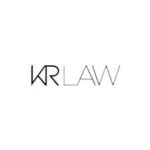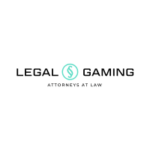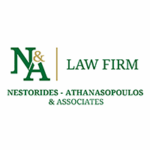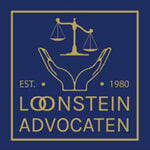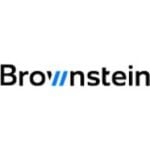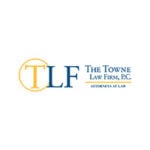-
What is the legal definition of gambling?
The New Jersey Code of Criminal Justice defines “gambling” as “staking or risking something of value upon the outcome of a contest of chance or a future contingent event not under the actor’s control or influence, upon an agreement or understanding that he will receive something of value in the event of a certain outcome.” N.J.S.A. 2C:37-1(b). “Something of value” includes:
[A]ny money or property, any token, object or article exchangeable for money or property, or any form of credit or promise directly or indirectly contemplating transfer of money or property or of any interest therein, or involving extension of a service, entertainment or a privilege of playing at a game or scheme without charge. This definition, however, does not include any form of promise involving extension of a privilege of playing at a game without charge on a mechanical or electronic amusement device, other than a slot machine as an award for the attainment of a certain score on that device.
N.J.S.A. 2C:37-1(d). A “contest of chance” is defined as “any contest, game, pool, gaming scheme or gaming device in which the outcome depends in a material degree upon an element of chance, notwithstanding that skill of the contestants or some other persons may also be a factor therein.” N.J.S.A. 2C:37-1(a).
-
What legislation applies to gambling? Please provide a summary of the legal/regulatory framework.
The Casino Control Act and the regulations promulgated thereunder by the New Jersey Division of Gaming Enforcement (“DGE”) govern land-based and internet gaming, as well as land-based and internet sports wagering. The Casino Control Act is located at N.J.S.A. 15:12-1, et seq., while the regulations are located at N.J.A.C. §§ 13:69, et seq. and 19K:40A, et seq.
In addition to the Casino Control Act and the regulations promulgated thereunder, the following legislation also relates to gambling in New Jersey:
- Off-Track and Account Wagering Act, N.J.S.A. 5:5-127, et seq.
- State Lottery Law, N.J.S.A. 5:9-1, et seq.
- Bingo, Raffles and other Legalized Games of Chance, 5:8-1, et seq.
-
Which body/ies regulate gambling?
The DGE and the New Jersey Casino Control Commission (“NJCCC”) regulate land-based casino gaming, including retail sportsbooks in New Jersey. The DGE is also the agency primarily responsible for the regulation of internet gaming and sports wagering.
The New Jersey Racing Commission regulates horse racing in the state.
The New Jersey Division of Consumer Affairs – Legalized Games of Chance Control Commission regulates bingo and other small games of chance.
The New Jersey Division of the State Lottery regulates the state lottery.
-
Are licences available? If so: a) What is the duration of a licence? b) What types of licences are available? c) Are there different types of licences for B2C and B2B operators? d) Do software suppliers need to be licensed?
Casino Licenses, Casino Service Industry Enterprise (CSIE) Licenses, Ancillary CSIE Licenses, Internet Gaming Permits, Sports Wagering Licenses, Lottery Courier Services Permits, and Lottery Sales Agent licenses are all available. In addition, there are individual licenses and qualifications available.
a. What is the duration of a licence?
Casino Licenses, CSIE Licenses, Sports Wagering Licenses, Key Employee Licenses and individual qualifications are all valid for five years.
Internet Gaming Permits are valid for a one-year period.
Vendor registrations to provide non-gaming services are effective at issuance and remain valid for an indefinite period, unless revoked, suspended, or withdrawn.
b. What types of licences are available?
Casino License
A Casino License is required to own or operate a land-based casino in New Jersey.
Internet Gaming Permit
An Internet Gaming Permit is required to conduct internet gaming in New Jersey.
Sports Wagering License
A Sports Wagering License is required to conduct sports wagering in New Jersey.
CSIE License
Companies providing goods or services directly related to casino, simulcast wagering, gaming activity, sports pools, internet sports pools, or internet wagering activity to, or otherwise transact business directly related to casino, simulcast wagering, gaming activity, or internet wagering activity with a casino applicant or licensee, its employees, or agents, including the following require a CSIE license:
- Manufacturers, suppliers, distributors, servicers, and repairers of roulette wheels, big six wheels, slot machines, multi-player slot machine systems, cards, dice, gaming chips, gaming plaques, slot tokens, prize tokens, dealing shoes, drop boxes, computerized gaming monitoring systems, totalisators, pari-mutuel machines, self-service pari-mutuel machines, and credit voucher machines;
- Casino credit reporting services, casino simulcasting hub facilities, and suppliers of casino security services;
- Companies providing internet gaming software or systems, vendors who manage, control, or administer games and associated wagers conducted through the internet, and providers of customer lists of persons who have placed wagers through the internet; and
- Companies providing sports pool or online sports pool software or systems, sports wagering kiosks, or that accept wagers from patrons and vendors who manage, control, or administer associated wagers.
Ancillary CSIE License
Companies providing services ancillary to gaming require an Ancillary CSIE License, and include, but are not limited to:
- Junket enterprises and junket representatives;
- Payment processing and related money-transmitting services with direct contact with patrons’ casino gaming or online sports pool accounts or the internet gaming system itself; and
- Customer identity, age verification, geo-location verification services used in the conduct of internet and mobile gaming, and entities that determine what wagers to accept or the odds to be offered for a wager for a sports pool manager or operator, regardless of any such enterprise’s contractual relationship with an internet gaming permit holder.
c. Are there different types of licences for B2C and B2B operators?
No, B2C and B2B interactive gaming operators shall obtain a CSIE license.
d. Do software suppliers need to be licensed?
Yes, software suppliers and developers require a CSIE or ancillary CSIE license depending on the services offered and/or the method by which the supplier is compensated.
-
Are any types of gambling products prohibited?
As to casino and internet gambling, only games offered under the DGE’s authority and in accordance with the DGE’s regulations are authorized.
-
What is the headline application procedure? Please include any eligibility and other application requirements, including approximate application costs and any need to establish a local presence.
Applicants for a license to conduct internet and retail casino gambling, sports wagering, pari-mutuel wagering, or lottery courier services requiring a CSIE, ancillary or lottery courier service license are required to file a license application for the applicant entity, as well as disclosure forms for each of the applicant’s associated entities and qualifiers.
Following submission of the application forms, the applicant and its associated entities and qualifiers will undergo a suitability investigation. Additionally, following submission of all application forms for the applicant and its qualifiers, a temporary authorization to operate may be available in the form of an interim casino authorization for a casino license applicant, a transactional waiver for CSIE and ancillary CSIE applicants, and a temporary permit for lottery courier service license applicants.
Applicants are required to register to do business in New Jersey.
The DGE provides a schedule of current application and licensing fees and costs on the linked table published on its website.
In addition to the listed fees, the DGE will assess investigative costs at an hourly rate on each applicant. In some instances, the application fee will serve as a retainer for investigative costs, and the applicant will be responsible for additional costs beyond that amount.
-
Do individuals within the business need to be personally licensed or authorised? If so, please provide headline requirements.
Yes, certain owners, directors, officers, and key employees of a licensee are subject to qualification by the DGE and qualification/licensure by the NJCCC.
Casino Licenses
The following individuals are required to establish and maintain qualification in connection with a casino license:
- Each officer of the applicant for or holder of a casino license;
- Each director of the applicant or holder of a casino license;
- Each person who directly or indirectly holds any beneficial interest or ownership of the securities issued by the applicant for or holder of a casino license; and
- Any financial backer, investor, mortgagee, bondholder, or holders of indentures, notes or other evidences of indebtedness, either in effect or proposed that bears relation to the casino operation or casino hotel premises who holds 25% or more of such financial instruments or evidences of indebtedness.
- Any person who in the opinion of the Director has the ability to control the licensee or its board; and
- Any other person as determined by the Director.
- As to each holding, intermediary and subsidiary company of such applicant:
- Each Corporate Officer;
- Each director;
- Each person who directly or indirectly holds a beneficial interest or ownership interest of 5% or more in such holding, intermediary or subsidiary company;
- Any person who in the opinion of the Director has the ability to control such holding, intermediary or subsidiary or any board of any of the forgoing; and
- Any other person as determined by the Director.
CSIE Licenses
The following individuals are required to establish and maintain qualification in connection with a CSIE license:
- Each natural person who directly or indirectly holds any beneficial or ownership interest of 5% or more of the applicant or licensee;
- Each person who directly or indirectly holds any beneficial or ownership interest of 5% or more of a holding company or intermediary company of the applicant or licensee;
- Each director of the applicant or licensee or of a holding or intermediary company thereof. In the case of an outside director of a holding or intermediary company, each outside director on the Executive and Audit Committee;
- Each officer of the applicant or licensee or of a holding or intermediary company thereof;
- The management employee supervising the regional or local office that employs the sales representative; and
- Each employee who will act as a sales representative or otherwise regularly engage in the solicitation of business from casino licensees.
Ancillary CSIE Licenses
The following individuals are required to establish and maintain qualification in connection with an ancillary CSIE license:
- Each natural person who directly or indirectly holds any beneficial or ownership interest of 5% or more of the applicant or licensee;
- Each inside director of the applicant or licensee;
- Each officer of the applicant or licensee;
- The management employee supervising the regional or local office that employs the sales representative or junket representative soliciting business or dealing directly with a casino licensee; and
- Each employee who will act as a sales representative or otherwise regularly engage in the solicitation of business from casino licensees and each junket representative who will deal directly with casino licensees or their employees.
-
Is advertising of gambling permitted and, if permitted, how is it regulated?
Yes, advertising of gambling is permitted and shall conform with the requirements set forth by the Casino Control Act and the DGE’s regulations. The Casino Control Act tasks the DGE with the regulation of gambling advertising. Gambling advertisements are required to include the appropriate responsible gaming message and as stated by the DGE’s regulations,
Advertising shall be based upon fact, and shall not be false, deceptive, or misleading. Without limitation as to the generality of the foregoing requirement, no advertising shall:
- Use any type, size, location, lighting, illustration, graphic depiction or color resulting in the obscuring of any material fact; or
- Fail to specifically designate any material conditions or limiting factors.
N.J.A.C. § 13:69C-14.2(d).
The DGE has also published a set of best practices relating to internet gaming and sports wagering advertising.
-
Are marketing affiliates permitted? If so, are they licensed or regulated?
Yes, marketing affiliates are permitted. However, the required license or registration depends on the method by which the marketing affiliate is compensated. Marketing affiliates compensated on a revenue share basis or player activity require an Ancillary CSIE License. Whereas, marketing affiliates compensated on a fixed fee basis for directing players to an internet gambling or sports wagering site need only register with the DGE as a vendor.
-
What are the penalties for offering, facilitating or marketing unlawful gambling, and can the gambler be penalised for participating in unlawful gambling?
Persons offering unauthorized or unlawful gambling may be found guilty of a crime in the fourth degree and may be subject to a fine of $50,000 for a natural person and $200,000 for a person who is not a natural person. Convictions of a fourth-degree crime are subject to imprisonment of not more than 18 months.
There is no current penalty for the individual gambler.
-
Briefly detail key requirements for licensees.
As a baseline requirement, all license applicants and licensees and their respective qualifiers shall establish good character, honesty, and integrity and maintain the qualification requirements of the Casino Control Act and the DGE’s regulations. An applicant will be disqualified under the following criteria:
- Failure to demonstrate its qualification for licensure by clear and convincing evidence;
- Failure to provide information requested by the DGE or the NJCCC or omission of a material fact or submission of information that is untrue or misleading;
- Conviction of the applicant or a person required to be qualified thereof of certain criminal offenses including certain violent crimes, theft and financial crimes, cheating and other gambling-related offenses;
- The participation of the applicant or a person required to be qualified in legalized gaming would be against the interests of New Jersey and the purposes of the Casino Control Act;
- The applicant or a qualifier thereof is found to be a career offender; and
- Failure to pay child support or is otherwise in arrears on a financial obligation owed to the State of New Jersey.
N.J.S.A. 5:12-86.
As to internet gaming requirements, all servers utilized for internet gaming and sports wagering in the State of New Jersey shall be located in Atlantic City, New Jersey. Furthermore, all hardware, software, and other related equipment utilized for internet gaming and sports wagering shall be located in a secured facility within a licensed casino or racetrack.
-
Briefly detail key anti-money laundering requirements.
In addition to the requirements set forth by the Bank Secrecy Act, casino licensees are required to create and implement the appropriate internal controls, employee training, and audit protocols for money laundering prevention.
Should a casino licensee offer internet gaming, the casino licensee is required to employ an internet gaming manager responsible for the monitoring of internet gaming for integrity and AML reporting. The internet gaming manager is also responsible for directly reporting any suspicious or illegal activity on the platform to the DGE.
Prior to commencing operations, the DGE also requires that sports wagering operators submit internal controls describing AML compliance standards, reporting procedures, and procedures to detect structuring of transactions by customers.
-
Briefly detail key responsible gambling (or safer gambling) requirements.
Casino licensees and internet gaming and sports wagering operators are required to implement responsible gaming procedures, employee training, and staffing and otherwise comply with the Casino Control Act’s requirements pertaining to advertising, game play, and self-excluded persons. An internet gaming and/or sports wagering platform must be capable of displaying spending and time limits, as well as notifications and other features relating to the duration of play to the user.
Players may elect to sign up to the self-exclusion list maintained by the DGE. Persons on the self-exclusion list may not collect winnings or recover losses while on the list. All operators are prohibited from accepting wagers from self-excluded persons and are responsible for ensuring that their internal systems cross-reference the self-exclusion lists.
The DGE has also published best practices for internet gaming requiring automated trigger alerts based on a patron’s game play and account activity. New regulations have been published but not yet adopted, which are in line with the previously published best practices.
-
Briefly detail shareholder reporting and approval threshold(s).
Direct and indirect owners of a beneficial interest of 5% or more in a casino or CSIE license are required to qualify. For purposes of this analysis, ownership interests are not calculated on a diluted basis, and holders of a beneficial interest of 5% or more in a qualifying holding, intermediary, or subsidiary company of a casino or CSIE licensee shall qualify.
As to ancillary CSIE licenses, an entity that directly holds any beneficial or ownership interest of 5% or more of the applicant or licensee and each natural person who directly or indirectly holds any beneficial or ownership interest of 5% or more of the applicant or licensee is required to qualify.
Certain exceptions to qualification may apply to institutional investors and private investment funds, as well as owners who demonstrate an inability to direct the actions of or control a licensee.
-
Briefly detail the regulator’s enforcement powers, including sanctions.
The DGE has the authority to impose monetary fines, suspend, revoke or place restrictions on licenses, and deny license applications. The DGE also has the authority to place vendors on its prohibited vendor list, which is composed of entities barred from doing business with licensees. Criminal violations of New Jersey’s gaming laws and all unlawful gambling outside the scope of the Casino Control Act are enforced by the New Jersey State Police and other law enforcement agencies.
-
What is the tax rate?
The effective tax is as follows:
Casino: 8%
Internet Gaming: 15%
Sports Wagering: 9.75%
Internet Sports Wagering: 14.25%
Casino licenses are required to pay an Investment Alternative Tax of 5% of gross revenue as a tax or 2.5% of gross revenue invested in bonds issued by the Casino Reinvestment Development Authority.
-
Are there any proposals for changing gambling laws and regulations in the next 12-24 months? If so, please provide an overview of the proposed changes and likely timing.
No statutory or formal regulatory changes are anticipated within the next 12–24 months. However, the DGE is proactive in issuing new guidance and best practices as a supplement to its regulations.
-
What key regulatory developments are proposed or on the horizon in the next 12-24 months?
As the DGE continues to issue internet gaming and sports wagering best practices, we expect that many of these practices will be formalized into regulations within the next 12–24 months.
-
Do you foresee any imminent risks to the growth of the gambling market in your jurisdiction?
The bidding and application process for the three down-state licenses in and around New York City has begun and is considered a long-term risk to the New Jersey gaming market once operational.
-
If a gambling start-up was looking for a jurisdiction in which to commence its activities, why would it choose yours?
Generally ranked in the top three in revenue among United States jurisdictions, New Jersey is a robust and well-established gaming market and is generally at the forefront of implementing new forms of gaming. While gaming is heavily regulated in the state and includes a strict licensing process, the regulatory scheme allows for interim authorization of companies new to the jurisdiction among all license types. Additionally, through the “New Jersey First” program, manufacturers and other service providers who submit equipment, hardware, and software to the DGE lab for testing prior to a similar submission in another jurisdiction are eligible for a shortened, 14-day review process. Finally, New Jersey has a very operator-friendly tax structure.
United States - New Jersey: Gambling Law
This country-specific Q&A provides an overview of Gambling laws and regulations applicable in United States – New Jersey.
-
What is the legal definition of gambling?
-
What legislation applies to gambling? Please provide a summary of the legal/regulatory framework.
-
Which body/ies regulate gambling?
-
Are licences available? If so: a) What is the duration of a licence? b) What types of licences are available? c) Are there different types of licences for B2C and B2B operators? d) Do software suppliers need to be licensed?
-
Are any types of gambling products prohibited?
-
What is the headline application procedure? Please include any eligibility and other application requirements, including approximate application costs and any need to establish a local presence.
-
Do individuals within the business need to be personally licensed or authorised? If so, please provide headline requirements.
-
Is advertising of gambling permitted and, if permitted, how is it regulated?
-
Are marketing affiliates permitted? If so, are they licensed or regulated?
-
What are the penalties for offering, facilitating or marketing unlawful gambling, and can the gambler be penalised for participating in unlawful gambling?
-
Briefly detail key requirements for licensees.
-
Briefly detail key anti-money laundering requirements.
-
Briefly detail key responsible gambling (or safer gambling) requirements.
-
Briefly detail shareholder reporting and approval threshold(s).
-
Briefly detail the regulator’s enforcement powers, including sanctions.
-
What is the tax rate?
-
Are there any proposals for changing gambling laws and regulations in the next 12-24 months? If so, please provide an overview of the proposed changes and likely timing.
-
What key regulatory developments are proposed or on the horizon in the next 12-24 months?
-
Do you foresee any imminent risks to the growth of the gambling market in your jurisdiction?
-
If a gambling start-up was looking for a jurisdiction in which to commence its activities, why would it choose yours?




